Filter by
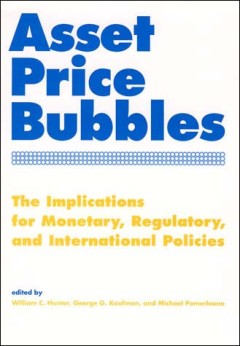
Asset price bubbles :implications for monetary, regulatory, and international…
Revised papers of a conference sponsored by the Federal Reserve Bank of Chicago and the World Bank.In both the industrialized and developing worlds, a distinctive feature of the last two decades has been prolonged buildups and sharp collapses in asset markets such as stock, housing, and exchange markets. The volatility has sparked intense debate in academic and policy circles over the appropria…
- Edition
- -
- ISBN/ISSN
- 9780262275910
- Collation
- 1 online resource (xxvi, 581 pages) :illustrations
- Series Title
- -
- Call Number
- -
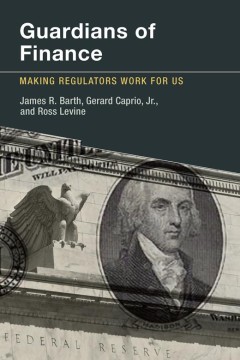
Guardians of finance :making regulators work for us
"The recent financial crisis was an accident, a 'perfect storm' fueled by an unforeseeable confluence of events that unfortunately combined to bring down the global financial systems. And policy makers? They did everything they could, given their limited authority. It was all a terrible, unavoidable accident. Or at least this is the story told and retold by a chorus of luminaries that includes …
- Edition
- -
- ISBN/ISSN
- 9780262301527
- Collation
- 1 online resource (xiii, 280 pages)
- Series Title
- -
- Call Number
- -
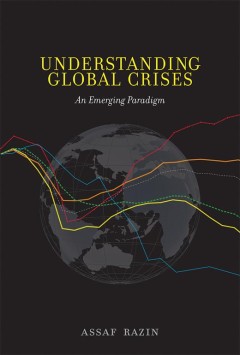
Understanding global crises : an emerging paradigm
This book offers a review of an emerging paradigm that is consistent with the key features of recent global financial crises. This paradigm presents in a transparent way basic analytical elements of the theories of financial and monetary crises and how these elements fit together in macroeconomic analysis of global crises. Razin surveys the credit implosion that led to a severe banking crisis i…
- Edition
- -
- ISBN/ISSN
- 9780262327701
- Collation
- 1 online resource
- Series Title
- -
- Call Number
- -
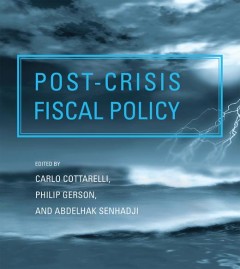
Post-crisis fiscal policy
Fiscal policy makers have faced an extraordinarily challenging environment over the last few years. At the outset of the global financial crisis, the International Monetary Fund (IMF) for the first time advocated a fiscal expansion across all countries able to afford it, a seeming departure from the long-held consensus among economists that monetary policy rather than fiscal policy was the appr…
- Edition
- -
- ISBN/ISSN
- 9780262324113
- Collation
- 1 online resource (vii, 562 pages) :illustrations
- Series Title
- -
- Call Number
- -
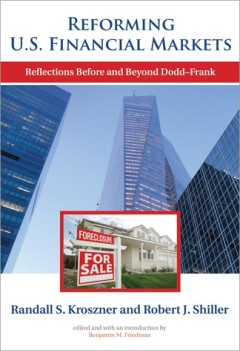
Reforming U.S. financial markets :reflections before and beyond Dodd-Frank
Papers and discussions presented at the fifth Alvin Hansen Symposium on Public Policy, held at Harvard University on April 30, 2009."Over the last few years, the financial sector has experienced its worst crisis since the 1930s. The collapse of major firms, the decline in asset values, the interruption of credit flows, the loss of confidence in firms and credit market instruments, the intervent…
- Edition
- -
- ISBN/ISSN
- 9780262295956
- Collation
- 1 online resource (xvii, 152 pages)
- Series Title
- -
- Call Number
- -
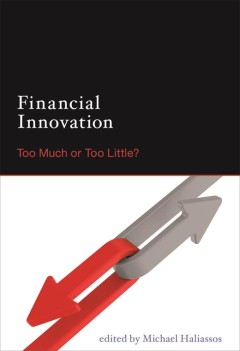
Financial innovation :too much or too little?
This text, which includes two contributions from Robert Shiller as well as a discussion of Shiller's 'MacroMarkets' tool, considers the key ingredients of financial innovation from both academia and industry; the postive potential but also the risks of financial innovation and the influence of producers on consumers.OCLC-licensed vendor bibliographic record.
- Edition
- -
- ISBN/ISSN
- 9780262305495
- Collation
- 1 online resource (xxii, 252 pages) :illustrations
- Series Title
- -
- Call Number
- -
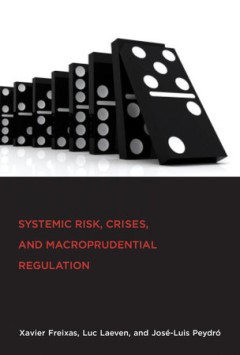
Systemic risk, crises, and macroprudential regulation
Offering a framework for understanding the reasons for the regulatory shift from a microprudential to a macroprudential approach to financial regulation, this book provides a list of challenges in the implementation of macroprudential policy and a discussion on its limitations. --OCLC-licensed vendor bibliographic record.
- Edition
- -
- ISBN/ISSN
- 9780262328609
- Collation
- 1 online resource (xiii, 472 pages) :illustrations
- Series Title
- -
- Call Number
- -
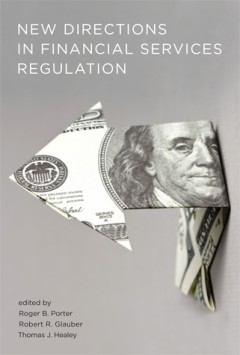
New Directions in Financial Services Regulation
This title grows out of a conference hosted by the Mossavar-Rahmani Center for Business and Government at Harvard's Kennedy School of Government in October 2009, and the book reflects the dynamic give-and-take of the event.OCLC-licensed vendor bibliographic record.
- Edition
- -
- ISBN/ISSN
- 9780262295789
- Collation
- 1 online resource (ix, 227 pages)
- Series Title
- -
- Call Number
- -
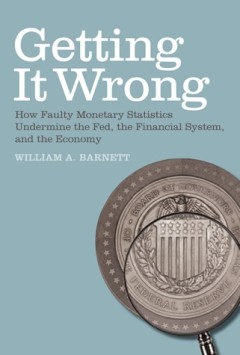
Getting it Wrong: How Faulty Monetary Statistics Undermine the Fed, the Finan…
Blame for the recent financial crisis and subsequent recession has commonly been assigned to everyone from Wall Street firms to individual homeowners. It has been widely argued that the crisis and recession were caused by "greed" and the failure of mainstream economics. In this book, leading economist William Barnett argues instead that there was too little use of the relevant economics, especi…
- Edition
- -
- ISBN/ISSN
- 9780262301343
- Collation
- 1 online resource (xxxi, 322 pages) :illustrations
- Series Title
- -
- Call Number
- -

Israel and the world economy :the power of globalization
This book provides rigorous analysis of some of the major episodes during Israel's economic transition and spells out, empirically, how globalization played a crucial role in advancing Israel's economic progress. Economists and policy makers can gain insights as to how a globalized economy can take advantage of international trade, labor mobility, its international financial links, while at the…
- Edition
- -
- ISBN/ISSN
- 9780262344234
- Collation
- 1 online resource
- Series Title
- -
- Call Number
- -
 Computer Science, Information & General Works
Computer Science, Information & General Works  Philosophy & Psychology
Philosophy & Psychology  Religion
Religion  Social Sciences
Social Sciences  Language
Language  Pure Science
Pure Science  Applied Sciences
Applied Sciences  Art & Recreation
Art & Recreation  Literature
Literature  History & Geography
History & Geography